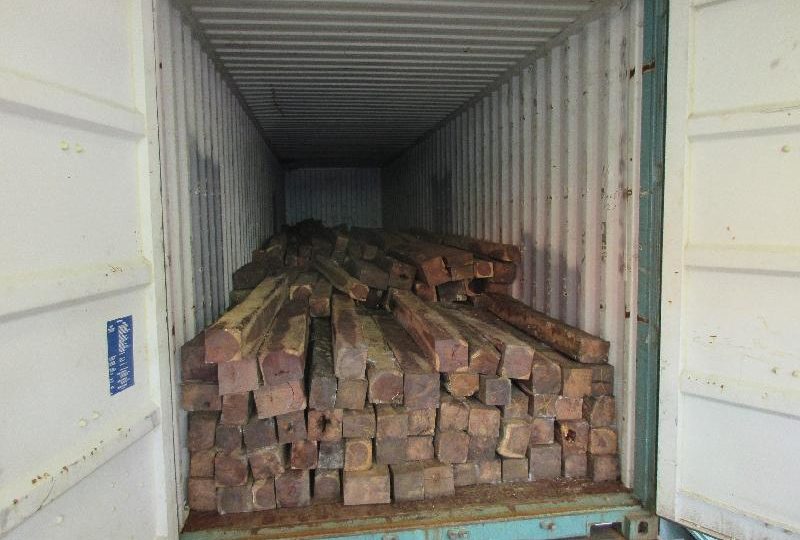In a rare outcome for container-borne illegal timber shipments, a woman has been sentenced to three months in jail in connection to a 29-ton load of endangered Honduras rosewood seized by Hong Kong customs in January.
Cai Huimian, a part-time worker at a construction materials business run by her husband, received the prison term yesterday after earlier pleading guilty to importing a species protected under Appendix II of the Convention on International Trade in Endangered Species (CITES).
West Kowloon Magistrates’ Court had heard Cai was listed as the contact person on import documents for the shipment, which arrived from Guatemala and was seized by customs officers on January 16.
According to notes from the hearing, passed to Coconuts HK by an observer present at court, the defendant was promised money in exchange for allowing her name, address and telephone number to be used on customs forms for the exotic timber.
The load, valued at some HK$2.9 million (US$369,000) by customs, was destined for China, home to a multi-billion dollar antique-style furniture industry.
The value of the rare wood was disputed by the defense though, in her line of questioning, magistrate Ada Yim made it clear she was concerned about the environmental impact of the case, asking the parties about the damage wrought by the timber’s extraction.
Yim said the defendant, a mother of three children who was also described as a “housewife”, had made a commercial decision in agreeing to be a middleman for the shipment.
The magistrate, however, shaved a third off her sentence for admitting to the offense and deducted another month noting she had no previous criminal record.
China’s demand for exotic hardwood has long been cited as the driving force behind logging in tropical forests around the world.
Hong Kong’s free trade port, meanwhile, has been described as the “golden route” for timber smugglers moving illegally-felled wood to the mainland, something Coconuts HK documented in-depth earlier this year.
In an effort to curb the city’s lucrative trade in endangered species, which is on the rise according to authorities, penalties for CITES-related offenses were strengthened in May.
A problem, however, is that most prosecutions for wildlife smuggling — including trading in rare wood — focus on mules or lower-level actors, rather than the networks that finance and facilitate the shipments.
While there’s nothing to indicate the investigation went beyond Cui’s role in the shipment, the attention paid to the environmental damage aspect of the case by the magistrate was heartening, said Alex Hofford, a wildlife campaigner with WildAid Hong Kong.
“It is encouraging to note that since the government’s penalty review for wildlife crime was implemented on the 1st of May, Hong Kong magistrates are now taking more time and asking more in depth questions on cases involving endangered species,” he said, commending the magistrate for “asking the right question” about how many trees the logs represented.
“Going a step further, it is important that prosecutors and magistrates understand that timber seizures are not just about lost trees, but overall biodiversity loss that includes birds, insects and mammals that lose their habitats due to illegal logging, as well as lost livelihoods for local communities that live in or around forest regions in Africa, Central America and Asia.”
Hofford urged authorities to bring endangered species trafficking under the Organized and Serious Crimes Ordinance to give police greater investigative powers to tackle the organized crime networks behind the trade.




